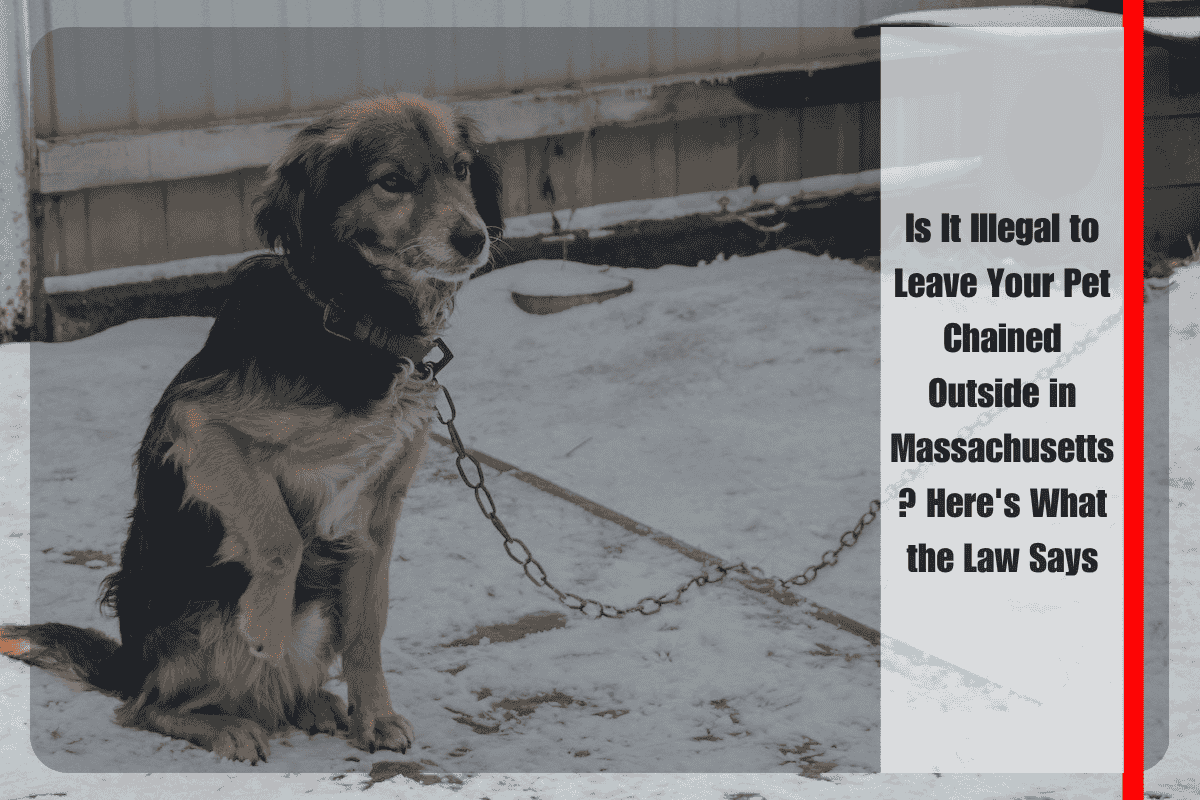As a pet owner, ensuring the safety and well-being of your furry companion is essential. One question that often arises is whether it is legal to leave a pet chained outside in Massachusetts. The state has specific laws in place to protect animals from neglect and abuse, and chaining pets for extended periods is a practice that has faced growing scrutiny.
Massachusetts Animal Cruelty Laws
Massachusetts animal cruelty laws are designed to protect pets and animals from harm, including inappropriate confinement. Under the Massachusetts General Laws (MGL), cruelty to animals is prohibited, and this includes neglecting an animal’s basic needs, such as shelter, food, and water. Chaining a pet outside for long periods can lead to physical and emotional harm, especially if the animal is exposed to harsh weather or confined in a way that restricts movement.
Massachusetts Law on Chaining Pets
Massachusetts law has specific regulations regarding how animals can be tethered or chained outside. According to the state’s “Tethering Law,” it is illegal to leave a dog tethered outside in extreme weather conditions, such as during excessive heat or cold. Furthermore, the law mandates that the tether must be long enough for the dog to move around freely, without being tangled or trapped. This law was put in place to prevent situations where dogs are left without proper care, shelter, or freedom of movement.
Requirements for Tethering a Dog
If a pet owner does choose to tether their dog outside, there are certain requirements under the law to ensure the dog’s well-being:
The dog must have access to adequate shelter to protect from extreme weather conditions.
The tether must be attached to a proper collar, not a choke chain or any harmful device.
The tether must allow the dog enough space to move around and relieve itself.
The animal must be provided with water and food, and regular checks should be made to ensure its well-being.
Consequences for Violating Tethering Laws
If a pet owner fails to comply with these laws, they can face serious consequences, including fines, criminal charges, and the potential removal of the animal. Animal control officers and law enforcement can intervene if they find that an animal is being mistreated or unlawfully confined.
Other Alternatives to Chaining Pets
Instead of chaining a pet outside, consider other ways to keep your dog safe and comfortable. Creating a secure outdoor enclosure or dog run can allow pets to move freely and safely. Regular exercise, playtime, and social interaction with their owners are essential for a dog’s health and happiness.
Leaving a pet chained outside in Massachusetts is not illegal in all cases, but there are strict regulations in place to ensure that animals are not harmed or neglected. Chaining a dog for extended periods can be considered a form of neglect under certain conditions. Pet owners should always ensure that their animals have proper care, shelter, and freedom to move, and should avoid chaining their pets for prolonged periods. Understanding and following Massachusetts’ animal cruelty laws will help ensure that pets live a healthy and happy life.
Sources
[1] https://malegislature.gov/Laws/GeneralLaws/PartI/TitleXX/Chapter140/Section174E
[2] https://www.mspca.org/animal_protection/tetheringchaining-of-dogs/
[3] https://www.animallaw.info/topic/table-state-dog-tether-laws
[4] https://www.peta.org/issues/animal-companion-issues/ordinances/massachusetts/
[5] https://www.rehobothma.gov/animal-control/news/tethering-your-dog-%E2%80%94-new-state-legislation-imposes-new-requirements












